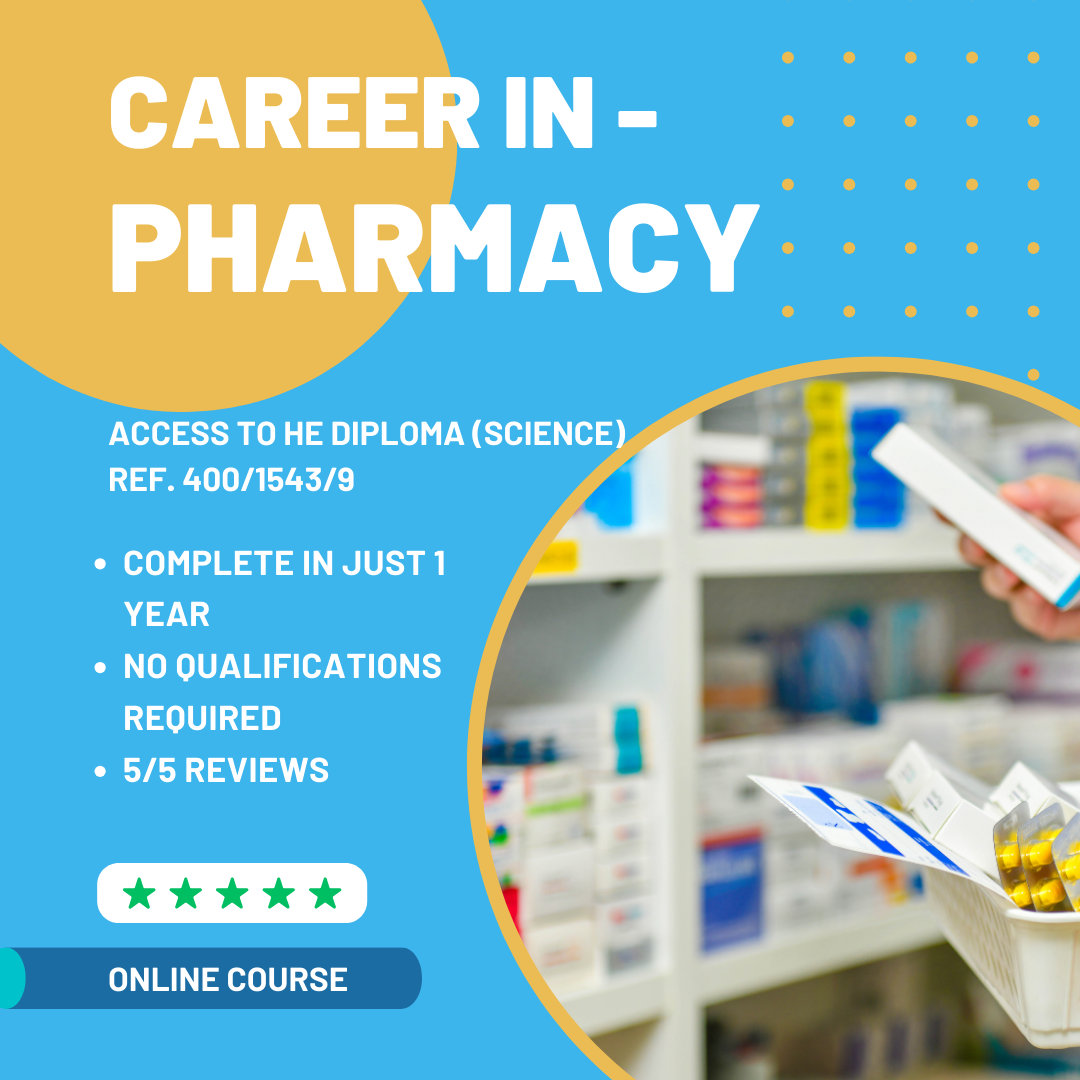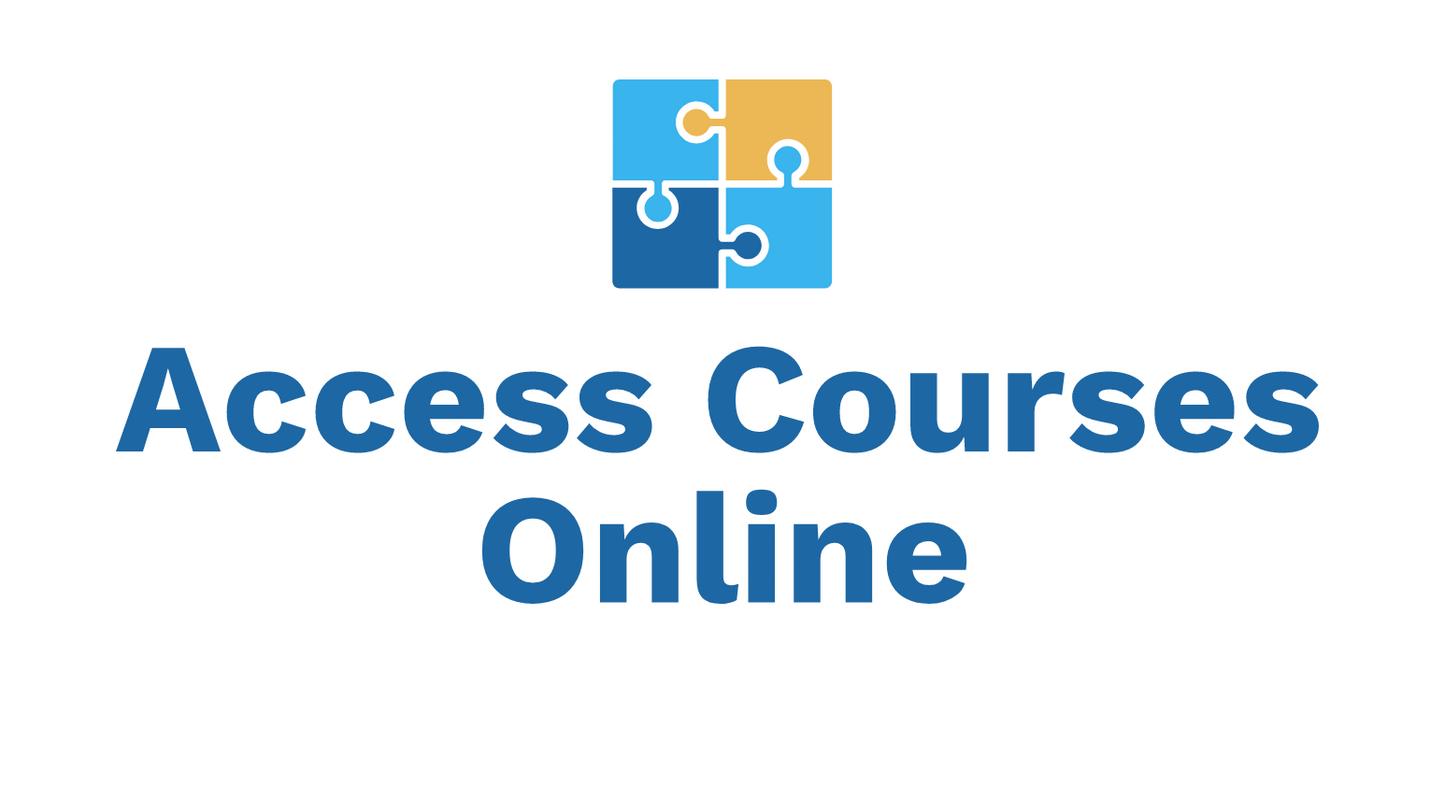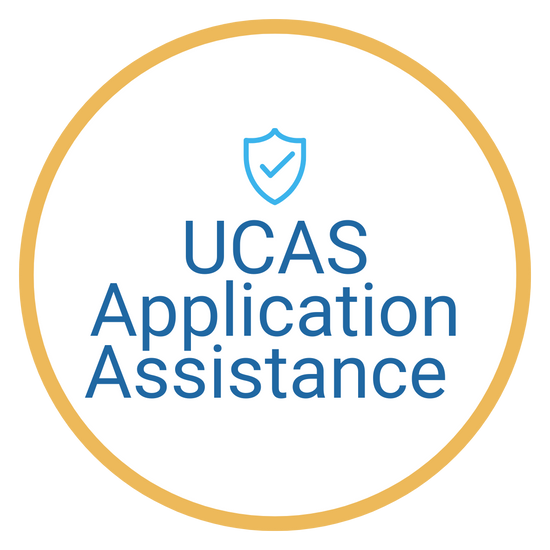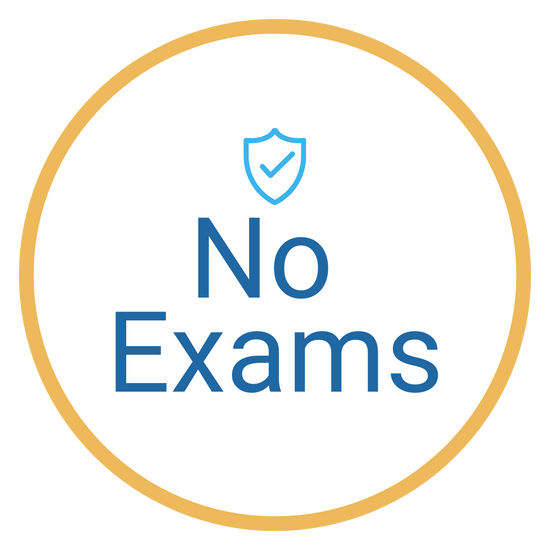AccessCoursesOnline
Access to Higher Education Diploma (Science)
Access to Higher Education Diploma (Science)
Couldn't load pickup availability
Course Outline
Course Outline
Our Access to Higher Education Diploma Science is ideal for students looking to pursue a broad range of science-related degree programmes. Whether you're interested in pursuing a career in medicine, biology, environmental science, or forensic science, this pathway provides a well-rounded foundation in key scientific principles, while offering flexibility for your specific academic interests. This pathway covers essential scientific topics such as Introductory Chemistry, Biochemistry, Human Cell Biology, DNA, Protein Synthesis & Cell Division, The Nervous System, and Respiration & Circulation. You’ll gain the fundamental knowledge that can be applied to a wide variety of scientific fields, from human biology to biochemistry. Additionally, you'll learn essential Statistical Techniques for data analysis and develop strong practical and research skills through a Practical Scientific Project. While the General Science Pathway provides a broad-based education, you’ll have the option to tailor your study focus based on your future degree plans. Here’s how it differs from other specialised pathways like Chemistry or Science Conservation: ● Chemistry Pathway: If you’re considering a chemistry-related degree, such as pharmacy, chemical engineering, or forensic chemistry, the Chemistry Pathway will include additional in-depth chemistry units, such as Analytical Skills for Forensic Science, Radioactivity, and specialised studies in Chemistry. You’ll explore the principles of chemical reactions and laboratory techniques in greater detail, enabling you to dive into advanced chemical topics that are essential for careers in chemistry and forensic analysis. ● Science Conservation Pathway: For those aiming for degrees in ecology, environmental science, or conservation, the Science Conservation Pathway focuses more on biological and environmental topics. You’ll explore units like Plant Biology, Conservation, and Ecology, Ecosystems & Environmental Management, which would be less emphasised in the General Science Pathway. This pathway integrates the science of sustainability and environmental management, offering insights into the protection of ecosystems, biodiversity, and the management of natural resources. Core Support for All Pathways Regardless of the specific pathway you choose, all students in the General Science Pathway will receive strong academic support through units such as Developing Critical Thinking, Academic Study Techniques, and Progressing to Higher Education. These will help you develop the essential skills for academic success, preparing you for university-level study. Upon completion of the Science Diploma, you will be well-equipped to pursue degree programmes in various scientific disciplines, including biology, biomedical science, environmental science, forensic science, or general science-based fields. This diploma offers the flexibility to adapt to a wide range of science-related careers, ensuring you have the foundational knowledge and practical experience to succeed in your chosen field.
Modules
Modules
To complete your Access to Higher Education Diploma (Science), you’ll need to achieve:
- 45 graded credits at Level 3 in academic subject areas
- 15 ungraded credits at either Level 2 or Level 3, focusing on essential study skills
Skills for Learning & Core Units
- Academic Study Techniques – Develop essential study and research skills for higher education
- An Introduction to Ecology – Explore fundamental ecological principles and environmental impact
- Progressing to Higher Education – Gain guidance on university applications and career pathways
- Develop Critical Thinking – Enhance analytical reasoning and problem-solving skills
Biological Science
- Human Cell Biology – Understand cell structures, functions, and processes
- DNA, Protein Synthesis & Cell Division – Learn about genetics and molecular biology
- The Nervous System – Study how the brain and nerves control body functions
- Plant Biology – Examine plant physiology and ecological importance
- Respiration and Circulation – Explore how the body processes oxygen and nutrients
- The Human Skeletal and Muscular Systems – Understand movement and structural support
- The Evolution of Multicellular Animals – Discover the development of complex life forms
Chemistry
- Biochemistry – Investigate the chemical processes that sustain life
- Analytical Skills for Forensic Science – Learn laboratory techniques for crime scene analysis
Additional Science
- Conservation – Study environmental protection and sustainability
- Statistical Techniques – Develop skills in scientific data analysis
- Radioactivity – Explore nuclear physics and radiation applications
- Practical Scientific Project – Conduct an independent research investigation
This course is designed to prepare you for university-level study in science-related fields. Whether you're pursuing a career in healthcare, forensic science, environmental research, or laboratory-based roles, you'll develop the skills and knowledge needed for success!
Curious about a particular module? Click on the title to learn more about each specific module and see what you'll be studying in detail!
Enrolment Requirements
Enrolment Requirements
There are no formal entry requirements for students applying for the Cambridge Online Education Access to H.E. Diplomas. Tutors are nevertheless, required to ensure that learners admitted onto the Diploma possess the necessary skills and personal qualities to cope with the demands of the course.
Assessments
Assessments
All Access to HE Diplomas require the achievement of 60 credits. 45 of the 60 credits must be graded at Level 3 (pass, merit or distinction). Such credits will arise from the Academic Subject Content Modules. The remaining 15 credits are ungraded and can be achieved at either Level 2 or Level 3. Students may only be registered against units with a maximum combined total credit value of 60. In terms of the length of time required for a learner to complete their diploma, for all Access to HE Diplomas the notional learning hours are 600. Notional learning hours comprise all learning that may be relevant to the achievement of the learning outcomes including directed and private study, practical and project work, assignments and assessment time. The assessment methods used for each unit of your course will be detailed in the Programme Handbook. Your tutor will provide you with formative feedback and provisional grades. Your grades will be then evaluated by the Examination Board. Final grades will be released to students after the External Moderation Visit.
Qualification
Qualification
On successful completion of the course, you will receive a QAA recognised Access to Higher Education Diploma (Science) at level 3 awarded by the Aim Qualifications and Assessment Group.
Aim Qualifications and Assessment Group are a national Awarding Organisation, regulated by the Quality Assurance Agency for Higher Education (QAA) and Qualifications Wales, to develop and award nationally recognised qualifications. Cambridge Online Education is a fully accredited education provider for this qualification
Careers
Careers
An Access Diploma in Science can get you onto degree programmes leading to the following careers:
- Analytical chemist
- Biomedical scientist
- Crime scene investigator
- Detective Forensic scientist
- Scientific laboratory technician
- Toxicologist
- Sports scientist
- Nutritionist
- Biologist
- Chemist
- Border force officer
- Forensic computer analyst
- Further education teacher
- Higher education lecturer
- Police officer
- Science writer
- Secondary school teacher
- Amenity horticulturist
- Commercial horticulturist
- Environmental consultant
- Environmental scientist
- Environmental education officer
- Environmental engineer
- Environmental manager
- Minerals surveyor
- Nature conservation officer
- Recycling officer
- Sustainability consultant
- Waste management officer
- Water quality scientist
- Virolologist
- Pharmacist
- Bacteriologist


Our Guarantees
-

Affordable Learning
We offer flexible payment plans to make learning more accessible and affordable. Spread the cost of your course over manageable monthly payments, so you can focus on achieving your goals without financial stress.
-

Application Support
We provide UCAS application support to help you navigate the university admissions process with confidence. From personal statement guidance to application tips, we’re here to support your journey to higher education.
-

Exam Free Learning
Our courses are completely exam free. Instead of exams, you'll complete assignments and coursework designed to develop your knowledge and skills in a supportive and flexible learning environment.
FAQ Science and Healthcare
MIdwifery
Where can I get specific information on Midwifery and careers?
Try the following link to see from NHS directly further links and questions they explore:
https://www.healthcareers.nhs.uk/explore-roles/midwifery/faqs-midwifery/faqs-about-careers-midwifery
Tutoring
Who will be my Tutor?
We have professionals that are current in their practice of their chosen fields to support you. For example, you will be able to take directly to a Midwife/Nurse and get guidance and support directly from these professionals as you complete your course.
This is on top of a Faculty Leader in Science who has worked as a Science Teacher for more than 10 years.
Will I get some 1:1 support?
Yes! We help our students personally navigate their career options with online video calls and messenger chats.
We provide 1-1 specialist support to you when you need it.
Working in partnership with you, we will provide a personal service of meeting individual educational needs and career options.
Experience
Do I need to be ‘good’ at science?
You experience of science at school will likely be in an exam-based system that places high importance on being able to remember knowledge and ‘perform’ under exam conditions. This course is completely different, instead of covering vast discipline of science this course focussing on the key foundation knowledge that you’ll need in the next step of your learning journey. Teaching difficult concepts is our expertise, we will meet you where you are and get you where you need to be. By the end of the course, you’ll love science and have produced some useful learning resources to take you into your next stages of study.
I’m anxious about sitting exams, will I have to sit exams either face-to-face or online?
This course is completely online, and you’ll be glad to hear that there are no exams. The course leader will assess your understanding and knowledge of the subject but setting you assessments with clear criteria and assessment descriptors. You will submit your assignment for grading, either ‘pass’, ‘merit’ or ‘distinction’.
I’m nervous to present or talk to the group online, will I be forced to do this?
We will meet you where you are, if you want to develop this skill ready for university then we can arrange smaller group sessions or one-to-one sessions to support you, or you can choose an alternative format for your presentation. We want you to feel comfortable and supported on this course.
University
Will I have support applying for university?
Absolutely, we will hold your hand every step of the way, you can talk to us about course choices, we’ll help proofread your personal statement, provide references. As promised, we will get you to university.
I haven’t decided which exact route I’d like to take within the profession, does it matter?
No, not at all, we’ll introduce you to a number of different professionals within the health services so you can hear about their journey, experience and careers.
Lessons
Will I have to do practical experiments at home?
The investigation skills unit is based around a practical investigation of red peppers. The equipment that you’ll need is limited to things you’d find in your kitchen but you don’t need to carry out the investigation yourself if you don’t want to as your course leader will demonstrate it.
What are the assignments like?
We set a variety of assignments that will set you up with skills that will be useful in your future studying and career. We encourage essay writing with referencing, but don’t worry, we’ll show you how! We also set presentations, video tasks, leaflet and poster design and we show you how to use great free tools like Canva to make it super easy.
Do I have to attend live lessons and switch my camera on?
No, not at all. Many of our students are busy people working shifts and managing several commitments. You can watch the session recordings and then arrange a time to meet with your tutor to ask any questions or get further support. As for the camera, switch it on if you feel comfortable, don’t worry if not. We’ve created a culture of supportive and collaborative students in our online community, but all approaches are respected and accepted. Do what makes you feel comfortable.





